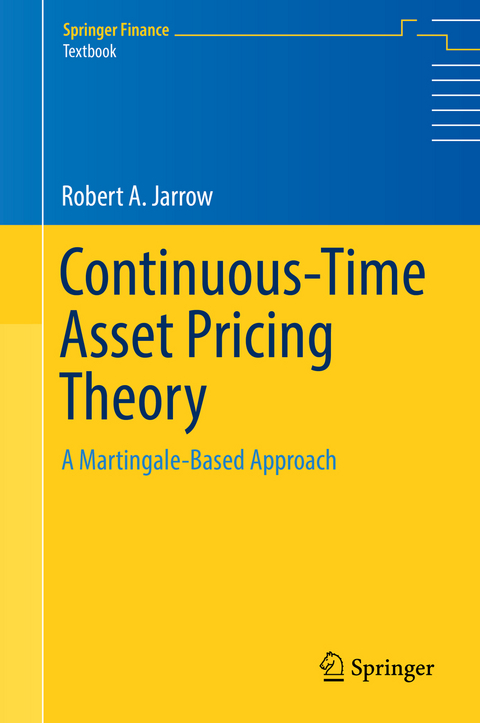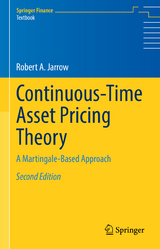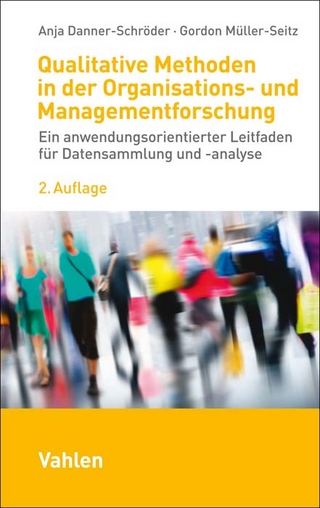
Continuous-Time Asset Pricing Theory
Springer International Publishing (Verlag)
978-3-319-77820-4 (ISBN)
- Titel erscheint in neuer Auflage
- Artikel merken
Yielding new insights into important market phenomena like asset price bubbles and trading constraints, this is the first textbook to present asset pricing theory using the martingale approach (and all of its extensions). Since the 1970s asset pricing theory has been studied, refined, and extended, and many different approaches can be used to present this material. Existing PhD-level books on this topic are aimed at either economics and business school students or mathematics students. While the first mostly ignore much of the research done in mathematical finance, the second emphasizes mathematical finance but does not focus on the topics of most relevance to economics and business school students. These topics are derivatives pricing and hedging (the Black-Scholes-Merton, the Heath-Jarrow-Morton, and the reduced-form credit risk models), multiple-factor models, characterizing systematic risk, portfolio optimization, market efficiency, and equilibrium (capital asset and consumption) pricing models. This book fills this gap, presenting the relevant topics from mathematical finance, but aimed at Economics and Business School students with strong mathematical backgrounds.
Robert Jarrow is the Ronald P. and Susan E. Lynch Professor of Investment Management at Cornell's SC Johnson College of Business (Ithaca, New York) and director of research at Kamakura Corporation. He is a co-creator of the Heath-Jarrow-Morton (HJM) model, the reduced form credit risk model, and the forward price martingale measure. These are the standard models used for pricing and hedging derivatives in major financial institutions. He was the first to distinguish forward/futures prices and to study market manipulation using arbitrage-pricing theory. He has received numerous awards, including the CBOE Pomerance Prize for Options Research, the Graham and Dodd Scrolls Award, the Bernstein Fabozzi/Jacobs Levy Award, the 1997 IAFE/SunGard Financial Engineer of the Year, and Risk Magazine's 2009 Lifetime Achievement Award. He is on the advisory board of Mathematical Finance - a journal he co-started in 1989, and he is an associate or advisory editor for numerous other journals. He is an IAFE senior fellow, and a member of the Fixed Income Analysts Society Hall of Fame and Risk Magazine's 50 member Hall of Fame. He has written seven books, including the first textbooks on the Black-Scholes and the HJM models, as well as over 200 publications in leading academic journals.
Preface.- Contents.- Part I Arbitrage Pricing Theory.- Part II Portfolio Optimization. - Part III Equilibrium. - Part IV Trading Constraints. - References.- Index.
"This book is very good reading for a Ph. D. student that wants to find in a single reference so much material and treated with a clarity that comes from the fact that the author has been a major contributor to most of these research topics over the last decades." (Gianluca Cassese, zbMATH 1432.91002, 2020)
"This book is a splendid compilation of the main research recently done in the fields of arbitrage pricing, portfolio theory and market efficiency. ... This book is a reference for those researchers interested in asset pricing by using stochastic calculus." (Salvador C. Rambaud, Mathematical Reviews, July, 2019)
| Erscheinungsdatum | 24.06.2018 |
|---|---|
| Reihe/Serie | Springer Finance | Springer Finance Textbooks |
| Zusatzinfo | XXIII, 448 p. |
| Verlagsort | Cham |
| Sprache | englisch |
| Maße | 155 x 235 mm |
| Gewicht | 865 g |
| Themenwelt | Wirtschaft ► Allgemeines / Lexika |
| Wirtschaft ► Betriebswirtschaft / Management | |
| Schlagworte | 49-XX, 90BXX • 60-XX • Arbitrage pricing • asset pricing theory • cash flows • continuous-time asset pricing • Derivatives Pricing • Equilibrium Pricing • Martingale measures • mathematical finance • portfolio optimization • Portfolio Theory • Quantitative Finance |
| ISBN-10 | 3-319-77820-X / 331977820X |
| ISBN-13 | 978-3-319-77820-4 / 9783319778204 |
| Zustand | Neuware |
| Haben Sie eine Frage zum Produkt? |
aus dem Bereich



